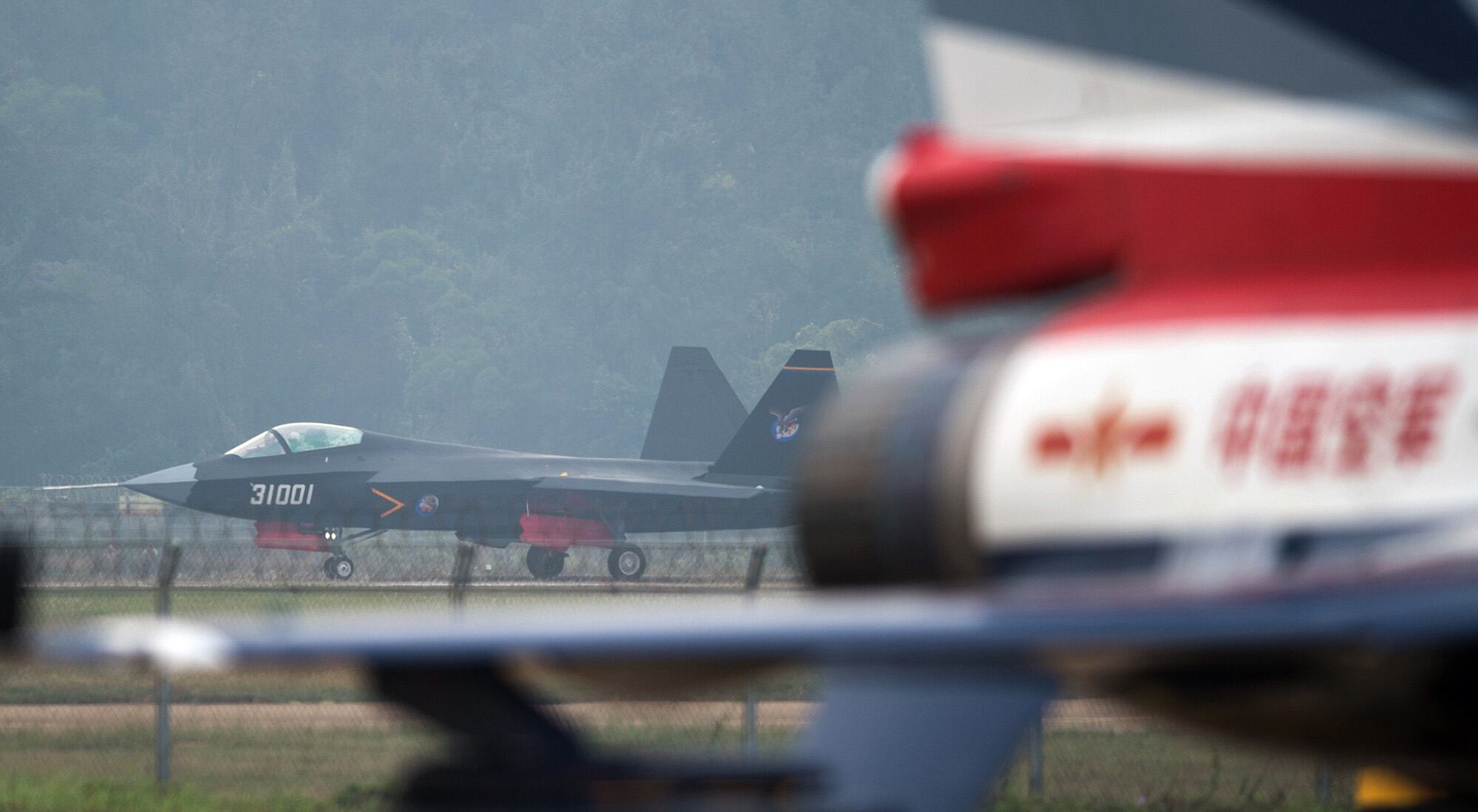MELBOURNE, Australia – China has put a number of operational and prototype unmanned aircraft designs on display at the ongoing Zhuhai Airshow, giving an insight to its increasingly wide range of unmanned systems in service.
These include fast, air-launched reconnaissance systems and stealthy unmanned combat air vehicles, or UCAVs, that are already in service with the country’s People’s Liberation Army Air Force (PLAAF). The exhibit highlights the effort China’s defense industry has made to broaden the types of drones the military has fielded.
Among the types on display is the Guizhou Aircraft Industry Corporation WZ-7 Xianglong – “Soaring Dragon” – high-altitude, long endurance unmanned aircraft. An example was present at the show’s static display while a second airframe was on display at the booth of state-owned aerospace and defense conglomerate Aviation Industry Corporation of China, or AVIC.
This is an unmanned reconnaissance type (WZ stands for Wu Zhen, which is short for “unmanned reconnaissance,, and is powered by a single, domestically produced turbojet engine believed to have been derived from a Russian design.
RELATED

The WZ-7 features a distinctive tandem, joined-wing design that allows for a more rigid, less flexible wing than other configurations. The benefits of that architecture are believed to include an increased lift-to-drag ratio and less complex flight controls than that of a more conventional wing design, like the U.S. Northrop-Grumman RQ-4 Global Hawk.
The large UAV, which measures roughly 12 meters (39 feet) long and a wingspan of approximately 22 meters (72 feet), has been in PLAAF service since at least 2019, and has been seen on satellite imagery operating from bases near the South China Sea and the disputed border with India.
Also on display at the static display at Zhuhai is a black painted WZ-8 supersonic drone. Little official information exists about the WZ-8, which was first shown at a military parade in Beijing in 2019.
The WZ-8 is powered by a pair of rocket engines, and is described as being able to operate at “near-space” altitudes. It is used to conduct reconnaissance of strategic, high-value targets, to aid in providing pre-strike targeting information for long-range missile attacks, or carrying out post-strike assessments.
The supersonic unmanned aerial vehicle is air-launched, with Xian H-6N bombers acting as the launch platform. The WZ-8s at Zhuhai carried no serial numbers indicating unit affiliation, although those seen at in December 2019 carried serials that tied them to the PLAAF’s 10th Bomber Division based at Anqing in Anhui province, to the west of metropolis of Shanghai.
Even more secretive than the WZ-8 is the GJ-11 (GJ – Gong Ji or attack/strike), a stealthy combat drone that was displayed alongside the WZ-8 in the 2019 parade. The GJ-11 is believed to have been derived from AVIC’s Lijian (“Sharp Sword”) demonstrator project but featuring a whole host of low-observable improvements such as a blended fuselage and triangular air intake with shielded exhaust nozzles.
A GJ-11 mockup was also put on display at AVIC’s stand at the indoor exhibition hall, with the mockup resting on its rear undercarriage to showcase the type’s twin weapons bays.
These were shown carrying four small bombs in the class of the GBU-39/53 Small Diameter Bombs in one of the bays, with the other incorporating what appears to be a 454-kilogram or 1,000-lb class weapon.
Mike Yeo is the Asia correspondent for Defense News.








